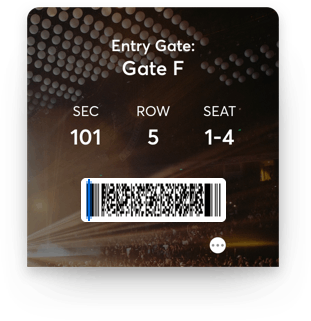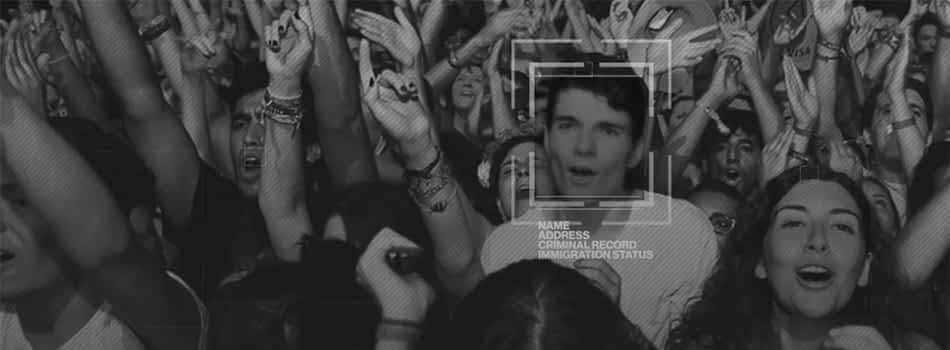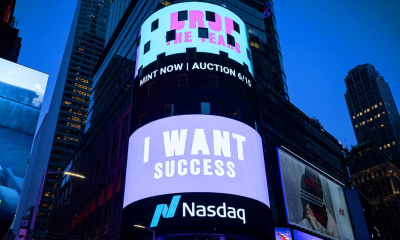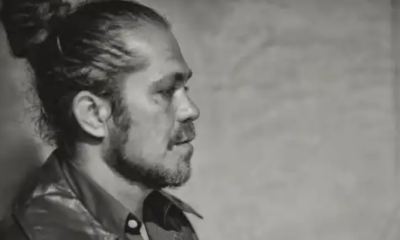Overview
Technology in professional sports has changed the industry in incredible ways. It has revolutionized how athletes train, creating stronger, faster, and more agile athletes. It's brought new equipment to protect the athletes and make the games safer. Technology has also provided equipment that measures biomechanics and data analytics that creates predictive models of how a team can exploit an opponent's weakness or how a team might strengthen its own. The fans enjoy more games or shows with more viewing options through internet services in high-resolution screens from multiple camera angles for sports and music. Ticket purchasing is more convenient through digital channels, and fans can connect with their favorites players through social media. It has been a remarkable few decades. And the future of sports and music will only continue to improve. There are numerous projects in the works using technologies such as Augmented and Virtual Reality (AR/VR), Artificial Intelligence (AI), Robotics, and Wearables. This article will specifically talk about how Web3 and Blockchain technology will be used in the future of sports and music. We believe Web3 and Blockchain technology will create vast improvements in the following five key areas...
Keeping the same features of Web2 that fans expect, but enhancing the ticketing, souvenir, fan engagement, and digital experience by 10x.
Digital tickets will become more than just entry passes into an event. The ticket can also allow artists and sports teams to give delightful and surprising “easter eggs” to their fans.
Blockchain and Web3 will give user data back to the user but still allow artists, athletes, and sports teams to gain insight and reward their true fans without paying an intermediary.
Digital collectibles in the form of NFTs have taken the world by storm in 2021. So it's only a matter of time before sports and music ditch the bobbleheads and adopt this new form of souvenir.
Blockchain and Web3 will give user data back to the user but still allow artists, athletes, and sports teams to gain insight and reward their true fans without paying an intermediary.
Parity x10
Keeping the same features of Web2 that fans expect, but enhancing this digital experience by 10x.
Web2 has changed the way fans engage at events. The digital ticket has become a convenient way for fans to check ticket availability, pick what seats they prefer, and pay, all within a convenient flow. The fan can use their smartphone with the digital ticket on it to get into the event. Team and stadium apps give the fan access to important information. For instance, fans no longer have to buy overpriced programs to know team rosters or keep stat lines at baseball games. Digital maps are displayed in team and stadium apps to show where concessions and first aid are located. These apps have even become sophisticated enough to gauge how long the wait is to use the restroom. It can also suggest alternatives with shorter lines. Stadiums like Citizen Bank Park and food giant Aramark have experimented with cashless kiosks called "Zoom Foods" to allow fans to self-order online or through a kiosk and then pick up their food and drink at designated pick-up areas. Despite all these significant advances, there are still some areas that can be improved moving forward.
For starters, digital tickets can still be fraudulent. They are indeed more secure than paper tickets, and company's like TicketMaster are developing ways to deter fraudsters. In 2019, TicketMaster developed "SafeTix," a function tied to the ticket holder's mobile device through an encrypted barcode that automatically refreshes every few seconds.

There's been a long love/hate relationship between bands/fans and TicketMaster. TicketMaster has had a lock on the multibillion-dollar ticketing industry and have only grown larger the last decade when they merged with Live Nation, the largest concert promoter in the United States. As a result, venues, artists, and teams have struggled to keep control of ticket prices. To make this situation worse, TicketMaster also owns a significant stake in the reseller ticket market, causing ticket prices to be even higher for fans, but does not benefit the artist, venue, or sports club. TicketMaster also has a reputation among fans for high "convenience fees" charged to the fan per ticket, not transaction. Plus, to buy a ticket, the fan must agree to a privacy policy that gives them the right to share their information with other companies.

SafeTix is only the beginning of TicketMaster's exploration in fraud deterrent. They also invested in start-up Blink Identity, which specializes in facial recognition technology. These innovations sound great for guaranteeing that entry tickets are authentic, but it sounds like it comes with many privacy risks. Amazon is also experimenting with its palm-scanning technology that it has used in Whole Foods and its cashless stores. Amazon partnered with ticketing company AXS and deployed standalone ticketing pedestals at Red Rocks Amphitheatre in Denver and are currently in use as of September 14, 2021. It is a bit concerning that TicketMaster and Amazon, which has a substantial profile on consumers, will potentially become the central system of personal identification to go along with the stores of data they are obtaining on fans.
Decentralization for Authentication and Privacy
Privacy and data ownership concerns are where Web3 and blockchaincan help. Blockchain is inherently secure and is an excellent fraud deterrent. Each "ticket" is unique and cannot be replicated, and its authenticity and who owns it is easy to verify. No one owns the blockchain or Web3. It's simply a tool available to anyone and has millions of people transacting on it today. Transactions can be simple peer-to-peer payments like sending Bitcoin to a friend. Blockchains like Ethereum contain "smart contracts" that can create rules, for example, set parameters between parties and release payment or exchanges when those parameters are met. So not only can a fan's "ticket" authenticate that they are the owner to allow entry into the event, but it is also built on top of payment rails that can be used to make other transactions during the event. The closest Web2 equivalent is a product called uptix by givex. Uptix is a stadium ticket that permits entry and also allows venues to load money directly onto a fan's ticket. This cashless payment method can be used at stadium concessions. For instance, venues can also push real-time promotions—a $5 discount on concessions after a home run.
Ethereum also has the ability to tie to your identity but in a more controlled and private way. For example, a fan could buy an alcoholic beverage without having to flash an ID. The purchase on Ethereum only check and authenticates that you are of age to make this purchase and gives the vendor no further details unlike using credit cards which track your spending habits. Tying identity to fan engagement can open up new possibilities in stadiums that are innovative to utilize Web3 wallets and blockchain public keys. It will also allow fans to protect and control their personal data while still serving venues, teams, and artists access to the more relevant pieces.
Collectibles
Digital collectibles in the form of NFTs have taken the world by storm in 2021. So it's only a matter of time before sports and music ditch the bobbleheads and adopt this new form of souvenir.
Personally, as a fan, I still have all of the ticket stubs of every show and sporting event that I have ever attended. There are shows whose tickets have simple plain lines of text that describe the event, and then there are some beautifully designed tickets. Unfortunately, after marriage, my tickets are in a manilla envelope, and every once in a while, I will pull them out and look at them. Some fans put them in scrapbooks or have creative ways of showcasing them. Now that tickets are going digital, we can enhance this experience and spark nostalgia and fond memories better.
We also can create collectibles that will last. Collectibles have primarily been physical and, for the most part, cheap. The cost of providing a free trinket for over 30,000 fans can get expensive. However, there's still enjoyment for receiving such pieces as bobbleheads. There is even a marketplace to trade, buy, and sell despite the quality—digital souvenirs and blockchain help to verify its authenticity. Digital souvenirs could be in the form of games that fans can play during or after the event, or animations, or graphic design created by a famous digital artist. I believe the fusion of digital, gaming, and events will become popular in the future.
Sports teams are already using blockchain to validate memorabilia. For example, the Sacramento Kings have given out player autographed sneakers and jerseys marked with a tag that can be scanned and validated with blockchain technology. As a result, fans can easily verify the authenticity of the memorabilia.
The NBA has TopShots which capture moments of a game. Fans can buy these "moments" with varying degrees of rarity. However, something yet to be seen is sharing "moments" with attendees of a game. For example, suppose a fan went to a game where someone breaks a record or makes a phenomenal play. Ethereum blockchain will allow that team to verify that you were in attendance and drop a Top Shots-Esque souvenir into your Ethereum wallet so that you can own the moment.
Our Experiments
Team Zero along with teammates, Treum, the makers of EulerBeats ran an experiment on chance-based minting of NFTs with artist, Jonathan Rosen. Here is the use case and result.

Jonathan Rosen Drop
Word based artist. Jonathan Rosen chance-based minting of word-art NFTs.
New Revenue
Web3 will develop new ways for musicians, athletes, and teams to create micro-franchises from their personal brand using a pay-it-backward method of smart contracts.
With all of these possibilities for new and authenticated collectibles and the marketplaces that it creates for fans, this could create new earning models for fans. In today's models, artists, athletes, and sports teams may not appreciate fans making money exploiting an athlete or artist's celebrity and notoriety. However, Ethereum smart contracts can tie royalties back to the artist, athlete, and sports team. Every sale can trigger a percentage of the earnings back to the musician, athlete, or sports team. Ease of using smart contracts and a connection to adding value to a fan's favorite player, team, or artist gives more incentive to fans that create to recognize intellectual property laws. If a fan creates a successful business, smart contracts can automatically give percentages back to the artist, athlete, or sports team and still allow the fan to earn on their creation. The selling of unlicensed material is already happening illegally. Smart contracts can create mutually beneficial and endless revenue streams. It forms a new type of franchise model for fans endorsing the brand of an artist, athlete, and sports team that they are passionate about serving. This franchise idea may not be beneficial for the Lebron James of the world, but it could create lucrative cult followings for that 7th man off the bench in basketball or middle reliever in baseball. A franchising model could also be attractive for minor leaguers in the major sports leagues, independent leagues, xSports, and the rising fanbases for eSports.
Our Experiments
Before we were Team Zero, we were Web3Studio doing similar experiments as we do now. We attempted to attack the Digital Rights Management problem with the pay-it-backward method smart contract. This was showcased at The Blockchain House at SXSW 2019. Here is the use case and result.

Bootleg
Concert footage as an unlock for the NFT holder. Unique shared royalty model for previous NFT owners.






